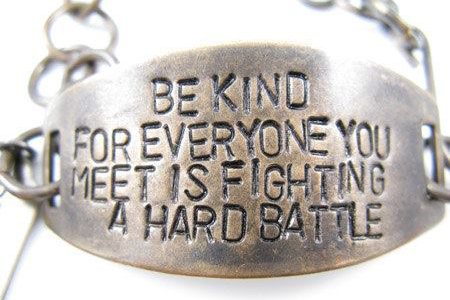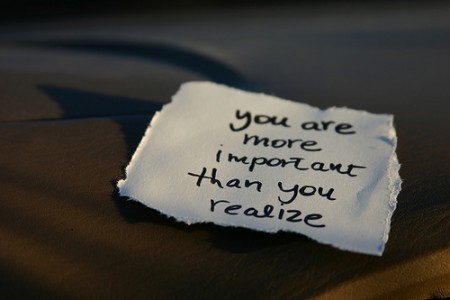There are no wrong feelings.
There may be wrong actions in the sense of actions contrary to the rules of human communication. But the way you feel towards other people: loving, hating, et cetera, et cetera; there aren’t any wrong feelings.
And so, to try and force one’s feelings to be other than what they are is absurd. And furthermore: dishonest.
But you see: the idea that there are no wrong feelings is an immensely threatening one to people who are afraid to feel.
This is one of the peculiar problems of our culture: we are terrified of our feelings. We think that if we give them any scope and if we don’t immediately beat them down, they will lead us down into all kinds of chaotic and destructive actions.
But if, for a change, we would allow our feelings and look upon their comings and goings as something as beautiful and necessary as changes in the weather, the going of night and day and the four seasons, we would be at peace with ourselves.
What is so problematic for Western man is not so much his struggles with other people and their needs and problems as his struggle with his own feelings. With what he will allow himself to feel and what he won’t allow himself to feel. He is ashamed to feel really profoundly sad, so much so that he could cry. It is not manly to cry.
He is afraid to loathe somebody, because you’re not supposed to hate people. He is ashamed to be so overcome with the beauty of something, that he goes out of his mind over this beauty. Because all that kind of thing is ‘not being in control, old boy‘; not having your hand on the wheel.
I think this is the most releasing thing that anybody can possible understand. That you’re inner feeling is never wrong. What you feel is never wrong – it may not be a right guide as to what you should do, but it is right that you should have the feeling of hating, or of being sad, or of being terrified. When a person comes to himself he comes to be one with his own feeling, and that is the only way to be in a position of controlling it.
~ Alan Watts
Being Human
“Feelings are never wrong” is really pretty simple. We can lie in our heads, we can label ourselves in certain ways, and we can misunderstand what we’re doing and why we’re doing it. But not so with our feelings. Like guileless children, feelings are innocent and reliable indicators of what’s going on with us, and it’s important to pay attention to them, because they always, always, always have something to tell us.
We might not like our feelings. Or we might not want to deal with them. We might have learned early in life that our feelings are to be “toughed out”, suppressed, or ignored. Maybe we’re afraid of succumbing to them because we were shamed for our big feelings as children and don’t want to relive that as adults.
Why do our big reactions have so much to teach us? Because they’re almost always an indication of unfinished business from our past. Usually, they’re rooted in fear, and they’re very old, and they have probably been causing problems, or really, different versions of the same problem, for our whole life. Getting to the bottom of them is the only way to heal, and healing from our old wounds is so very necessary to living a fully engaged life.
So the next time you find yourself having a big reaction that doesn’t fit a situation, try to step away from it and assess what’s going on. You may need to own the reaction and apologize, but after taking care of this, go inward and try to find the source. Here are some things to consider:
- What was the exact feeling? (Fear, grief, or anger)
- What did this incident remind me of?
- When did I feel this way earlier in my life?
- What was I able to do about it then?
- What can I do about it now?
You may be able to come up with a specific incident or two that are often indicative of a pattern that occurred in your childhood; probably a painful one that you would rather not remember (which is why you repressed it in the first place). Being able to identify this incident and own how painful it was is the key to working through it. Feel it, to heal it.
Feelings are never wrong.
If we start with this simple premise, we can come to understand our feelings, and thus ourselves, at a deeper level; we can learn to separate our feelings from our reactions; and, we can learn to control our reactions no matter how big the feelings that underlie them.
~ M.











